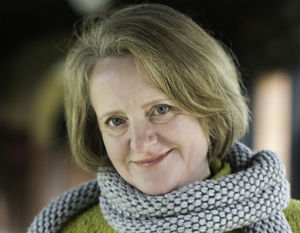Professor Flora Samuel elected first RIBA Vice President for Research
09 January 2018

Professor Flora Samuel has been elected the first Vice President for Research at the Royal Institute of British Architects (RIBA).
A professor of architecture at the University of Reading, Flora's success in fighting to push research higher up the RIBA's agenda has resulted in the creation of, and her election to, the post of Vice President for Research at the RIBA.
Flora has been championing the importance of research through her project 'Evidencing and Communicating the Value of Architects'. This project focuses on the development of research in architectural practice, supporting architects to demonstrate their value through research.
Jane Duncan, RIBA President 2015-2017 said: "Flora has worked tirelessly to promote the cause of research at the RIBA and amongst the profession over the last five years."
Ben Derbyshire, RIBA President elect, said that Flora's project has played an important role in "turning the tide of the profession towards research."
Although the RIBA was conceived to advance the cause of architectural knowledge, research has had a low priority within the organisation, as evidenced by the presence of the Research and Innovation Group at the lowest level of its organisational structure. To support the development of her project Flora was elected as a National Member of the RIBA Council, which is a body of 70, including only three full-time academics. She has been a member of the RIBA Research and Innovation group for five years and is currently the Chair.
Flora said of her new post: "People have been trying to get research to the top table of the RIBA for a long time. I am really honoured to be taking up this exciting new role."
There are widespread benefits of Flora's project and new position outside of the RIBA. The development of the knowledge economy of architectural practice will deliver important business benefits, while the increased emphasis on research will give architects the data needed to design more appropriate, productive, healthy and inspiring environments for people.
The research has also had a positive impact on the University's School of Architecture in terms of its curriculum and its aspiration to lead on the development of research in practice.
